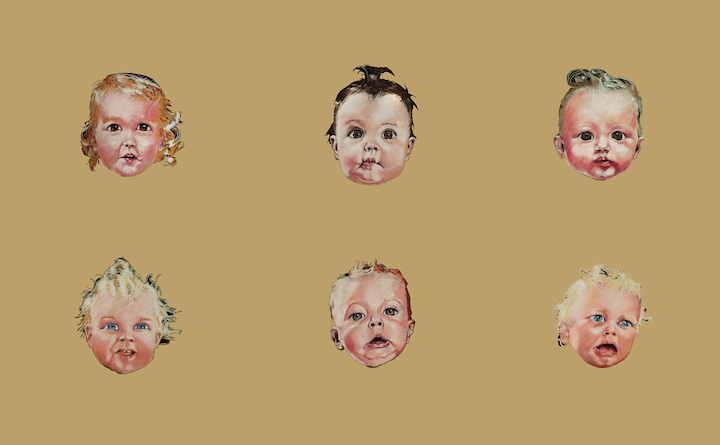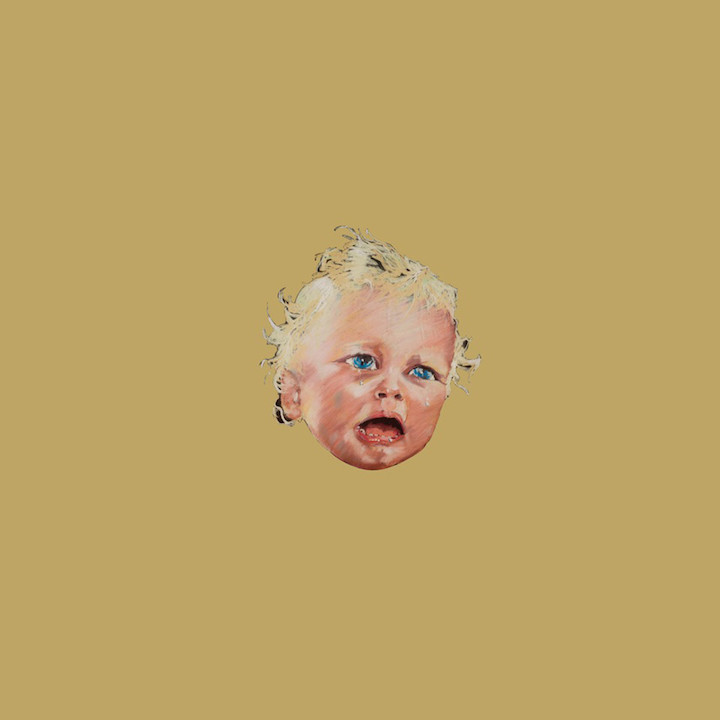
Swans’ To Be Kind
Those of us lucky enough to have seen Swans live in concert will know that they are unlike any other band currently touring. Other bands may be heavier, other bands may be louder, other bands may be noisier, but no band is quite as intense as Swans—a feat made all the more remarkable by the fact that its leader, chief songwriter, and sole constant member, Michael Gira, turned sixty this year, and that the band had been on a decade-long hiatus before reforming in 2010.
When they play, their sets are long—as a rule they don’t play slots that are shorter than two hours—and they spend most of those two hours creating crushing volleys of sound using only analogue instrumentation—drums, bass, guitar, dulcimer, gongs. In the course of a concert they may only play six or so songs, some of which stretch out into forty-five minute epics where a central motif is repeated and ever-so-slowly mutated. They are, of course, ridiculously loud, even if Gira has forsworn the kind of extreme decibels that famously caused his audiences to vomit at shows in the eighties.
I say ‘lucky’, because even though the above précis might sound like a description of the aural torture famously used by the US military against Iraqi insurgents, Swans are not fundamentally about aggression, angst, or the cheap catharsis promised by testosterone-driven hard rock. By contrast, as Gira himself put it, “People always consider us to be very dour and depressing, but fuck that shit. The goal is ecstasy”. The loudness, the noisiness, and the crushing repetition are not ends in themselves but rather tools deployed towards that goal. To enjoy Swans requires work, something that many music consumers are not accustomed to in an age of streaming music on demand and pop music finely calibrated to drive straight for our neural pleasure centres. In this way, seeing Swans live is akin to taking part in a heavy BDSM scene: it’s not exactly pleasant, but it offers the promise of a kind of radical jouissance that other, more accessible thrills do not. Or, as Gira sings onThe Seer’s final track, ‘We’re on a ladder to God’—which implies not only that transcendence is the goal, but that the ladder must be firmly planted in the base matter of the world, too.
To Be Kind, Swans’ latest album, captures a good slice of the phenomenal heft and energy of their live shows. Like its predecessor, The Seer, it stretches over two discs and two hours or so; unlike its predecessor, only one song (‘Some Things We Do’, a low-key piece consisting of Gira’s vocals and orchestral accompaniment) could be called a reprieve from the intensity of the album’s monolithic tracks. These things are huge, and the fact that ‘A Little God in My Hands’—a seven-minute slab of hard rock that ends with a deafening blast of caterwauling guitars, clarinets, and theremins—was selected as the lead single (traditionally the easiest entry point into an album) speaks volumes about the ambition of To Be Kind.
The longest song on the album, ‘Bring the Sun/Toussaint L’Ouverture’, runs for a whole thirty-four minutes, opens with a bracingly loud riff, and concludes with Gira screaming wordless howls of some primal pain and release before the rest of the band bring the whole thing to a crescendo that sounds like the world being torn limb from limb. Not that Swans need volume to create intensity: ‘Just a Little Boy (for Chester Burnett)’ creates a thick miasma of suspense through its funereal pace and spacious arrangement, and ‘Kirsten Supine’—named after Kirsten Dunst’s nude scene in Lars Von Trier’s Melancholia—is suffused with an eerie beauty and calm before the inevitable cataclysm arrives.
At the time of its release, Gira claimed that the The Seer was ‘the culmination of every previous Swans album as well as any other music I’ve ever made, been involved in or imagined’, which explains some of its kaleidoscopic ambition. To Be Kind, by contrast, is a more focused album, even as its songs sprawl longer. It’s heavier, louder, darker, even more monolithic. It pushes the ladder to God further down into the muck of misery and abjection that Swans have always occupied, and, in so doing, extends its reach further into the sky.
